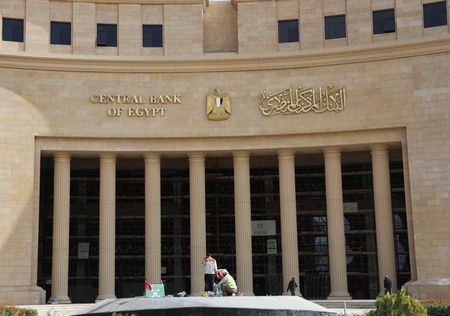JOHANNESBURG (Reuters) -South Africa’s rand weakened on Monday as the rally in commodity prices eased and markets braced for rate hikes in the United States and Britain.
Although the South African currency is considered a relatively risky asset, it has gained favour in recent days as higher prices of gold, palladium and coal boosted prospects of stronger export income for the commodity-rich country.
At 1527 GMT, the rand traded at 15.0400 against the dollar, 0.17% weaker than its previous close.
Gold prices fell on Monday as U.S. rate-hike expectations lifted Treasury yields to their highest in a month, while hopes of progress in Russia-Ukraine peace talks further reduced bullion’s safe-haven appeal. Palladium and platinum also dropped.
Nedbank analysts said the foreign exchange markets remained vulnerable to developments in Ukraine, but the focus the week was also on the upcoming Federal Open Market Committee (FOMC) meeting.
The meeting is expected to begin hiking interest rates from their pandemic lows, with investors also watching projections for the frequency and size of future rate increases.
The Bank of England is expected to lift its rates to 0.75% on Thursday, the third rise in a row, and to signal more to come with the market pricing an aggressive 2% by the year-end.
Higher rates in developed markets often drain capital from riskier emerging markets such as South Africa, affecting their currencies.
In fixed income, the yield on the benchmark 2030 government bond added 11.5 basis points to 9.86%.
Shares on the Johannesburg Stock Exchange (JSE) posted another major fall with the main indexes dropping by over 2% for the third time in as many months, triggered by the slide in commodity prices and reports of a potential fine by China on a technology firm that hurt one of its main investors listed on the JSE.
The benchmark all-share index was down 2.42% to 71,904 points and the blue-chip of top 40 companies lost 2.72% to 65,501 points.
The Wall Street Journal reported on Monday that Chinese tech giant Tencent Holdings could be fined hundreds of millions of yuan for violating some central bank regulations on its WeChat Pay mobile network.
Technology investor Naspers Ltd, which is among the top ten constituents of JSE’s benchmark index and the top investor in Tencent, lost over 13%.
Naspers, through its Amsterdam- and JSE-listed company Prosus, holds up to 28.8% in Tencent. Naspers and Prosus together account for over 7% of the benchmark index and heavily impacts the stock market’s performance.
Prosus shares were down over 11%.
(Reporting by Olivia Kumwenda-Mtambo; Editing by Sherry Jacob-Phillips and Barbara Lewis)











